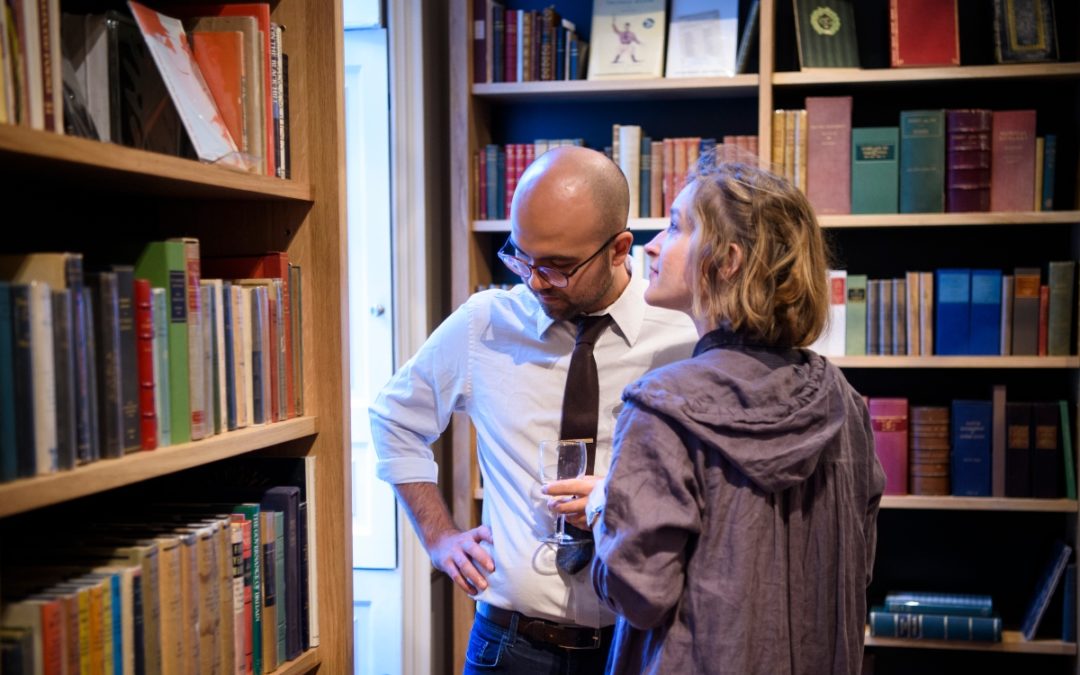How did you hear about the IES?
I used to work there.
Oh.
Yeah. Like, for seven years.
So you’re not exactly an unbiased opinion are you?
Nope. Lots of bias here.
Bias in…a good way?
I worked in administration at the IES and that experience did not make me want to run away from the place and never see it again. In fact, just the opposite. It convinced me that the IES was the place for me to do my PhD.
And why is that?
The people. The people are incredibly thoughtful and caring and also world experts in their fields. It’s a rare combination (especially in academia…)
Are you saying that because they’re your former colleagues?
Yes, but also because it’s true. And I’m not only referring to the academic members of staff, but also the research fellows (postdoc, visiting, and senior) and administrators whom I’ve always found to be helpful personally and professionally. There’s a great community at the IES.
But isn’t the IES a bit…niche?
Or are other places a bit general?
Touché.
Like Goldilocks, I find the size of the IES, and its ‘parent’ organisation, the School of Advanced Study, ‘just right’. The IES (and SAS) is a postgraduate institution so staff members are only focused on MA teaching, PhD supervision, and their own research. It means that there’s a lot of personal attention to students, which wouldn’t necessarily be the case in a larger institution with undergraduate teaching.
And your fellow PhD students?
There are about 12 of us currently undertaking PhDs at the Institute, in a mixture of full-time and part-time, ranging from those who have recently completed an MA programme, to those (like me) who are taking a mid-career break, or those (like Margaret) who are working on a second PhD. Our projects range from medieval to modern.Â
What’s life as a PhD student like?
I wake up. I drink a cup of tea. I sit in bed and read until noon. Then I eat lunch. Most afternoons I go into the archive and look through material until 5. Every six weeks or so I take a week to write up everything I’ve been working on. I meet with my supervisor, Dr Andrew Nash, at least once every two weeks: he checks on my progress, recommends reading, and gives feedback on draft chapters. Throughout my programme I’ll also attend seminars or lectures relevant to my research. SAS also offers lots of research training opportunities.
Any advice to prospective students?
Have a very clear idea of what you want to study before you apply. A PhD programme at the IES lasts three years (with the possibility of a fourth year as a ‘writing up’ year). As I’m quickly learning, three years is just enough time in which to conduct the research and reading necessary to complete the dissertation, but it doesn’t leave much wiggle room. In crafting your project proposal, be as clear as possible in your research questions, your review of existing literature, and (if applicable) which archival sources are relevant to your study. Definitely write to the member of staff whose interest/period overlaps with your own to discuss your proposal.
Best part of the IES?
If you want to study anything related to book history, bibliography, manuscript, or textual studies it is the place to go in the U.K. My favourite thing about the IES is the way in which the (extensive!) seminar programme, conference programme, summer schools (including the Palaeography Summer School and the London Rare Books School) complement the teaching programme and the research interests of staff members.
Sounds like you’ve drunk the Kool-Aid.
Guilty as charged.
Christopher Adams is a first-year PhD student at the Institute of English Studies. His project is a publishing history of post-war queer British fiction. You can follow him on Twitter @beijingcoma

